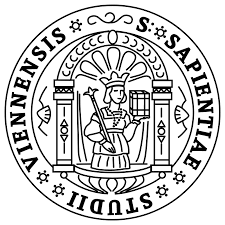Italicis oris Germana in regna tulisti / Castalides
Zur Rezeption humanistischer Dichtung an der Universität Wien
DOI:
https://doi.org/10.15170/SPMNNV.2011.06.09Keywords:
Vienna university, emperor Maximilian I, encomiastic poetry,, diffusion of humanismAbstract
Italicis oris Germana in regna tulisti / Castalides. The reception of humanist poetry at Vienna university in the early 16th century. In 1512 Adrian Wolfhard (1491 – 1545), a Transylvanian Saxon graduated magister in 1511, published a lengthy hexametric poem (Panegyris, Viennae: Singrenius – Vietor) in praise of Emperor Maximilian I. The eulogy of the emperor concentrates on his humanist learning and promotion of humanist studies. Echoing Conrad Celtis’ famous ode, Wolfhard praises Maximilian for having introduced Apollo and the Muses into his German speaking territories. Apart from its emphasis on humanist studies, the Panegyris assembles stock items of encomiastic poetry, it lacks concreteness and betrays the author’s unfamiliarity with Maximilian’s actual political objectives. On closer inspection, its patchwork character results from a deliberate interweaving of imitations: Wolfhard heavily relies on the first epic poem dedicated to Maximilian and his father Emperor Frederick III (Helius Quinctius Aemilianus Cimbriacus, Encomiastica, Strassburg 1512), he furthermore alludes to a congratulatory address on the occasion of Maximilian’s election to the throne of the Holy Roman Empire (Ermolao Barbaro, Oratio ad Federicum Imperatorem et Maximilianum Regem Romanorum, principes invictissimos) and possibly to Janus Pannonius, Ad imperatorem Caesarem Fridericum Tertium pro pacanda Italia. Despite the clumsiness of some of Wolfhard’s adaptations, the idea behind them is not devoid of originality: By taking over slightly modified key passages from humanist predecessors Wolfhard evidently wished to put into practice the concept of a translatio studii; the textual transpositions were meant to be recognized by a University audience and should serve to illustrate the successful transfer of humanism from Italy to Vienna.


